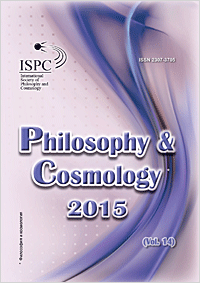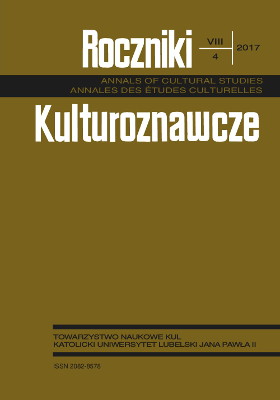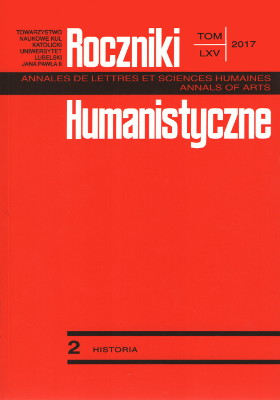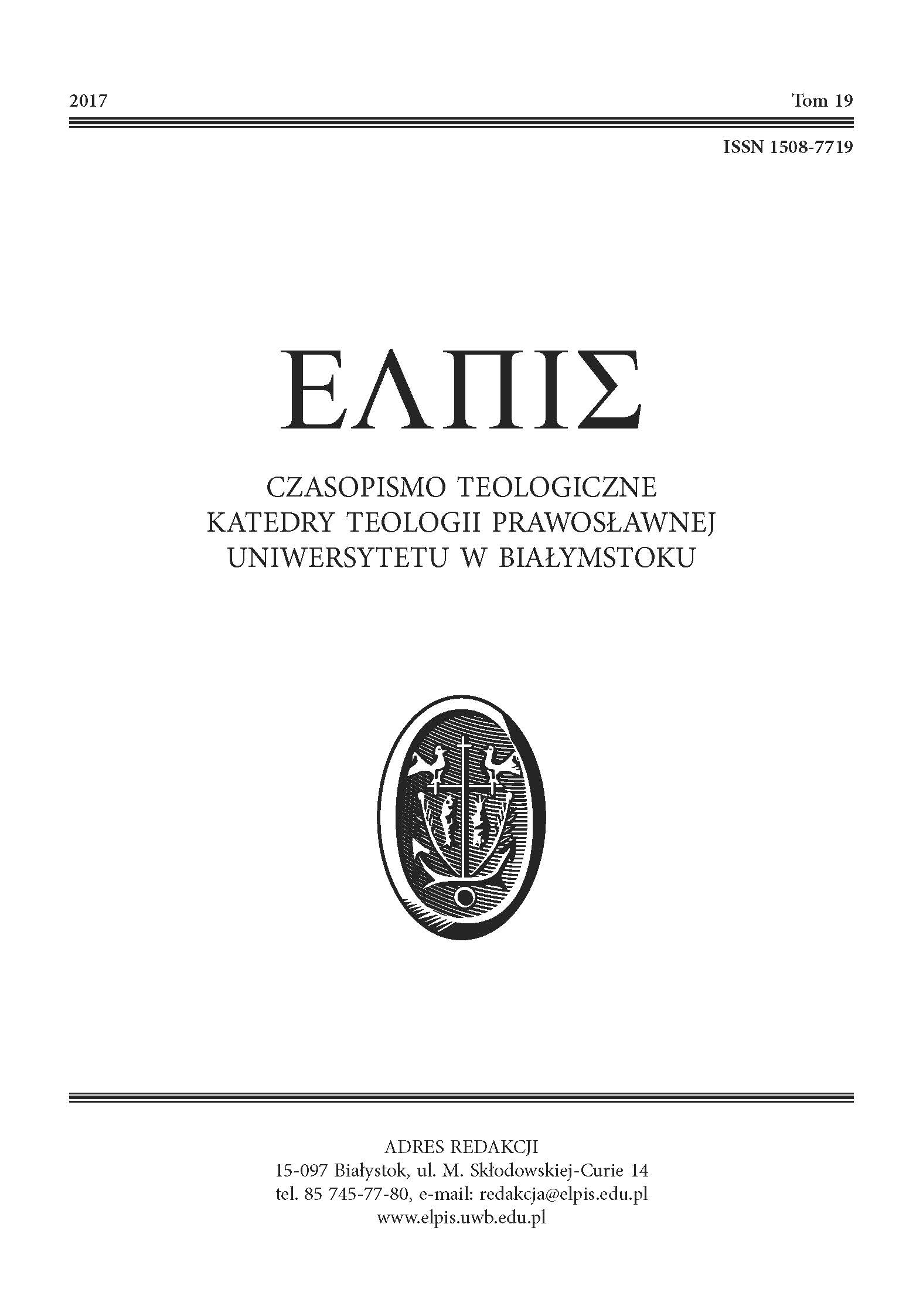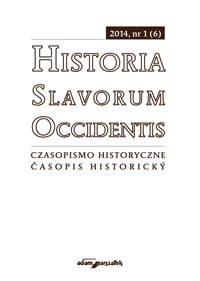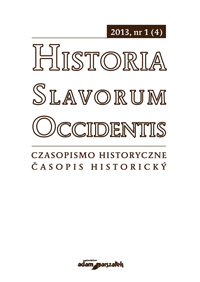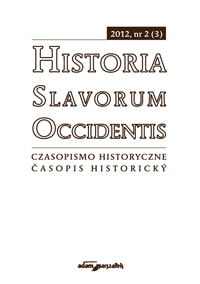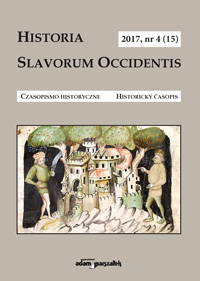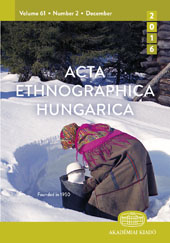Author(s): Victoriia Mykolayivna Pishchanska / Language(s): Ukrainian
Issue: 36/2016
By analyzing artistic features of Cossack folklore XVII–XVIII centuries the author justifies the presence of interference of the process of forming Cossack cultural environment and the development of Ukrainian Baroque as artistic phenomenon. Cossack Baroque is representing here stylistic and substantive aspects of the overall development of Baroque art in the light of the evolution of syncretism religious and aesthetic in folk traditions and humanistic ideas which accumulated inherited ethno-cultural habits, acquired traditions of Cossack cultural environment and the attitudinal and aesthetic principles of Baroque, creating a kind of genuine phenomenon – Cossack Baroque. As it will be shown the main principle of creation and functioning of the Cossack Baroque is religious and aesthetic syncretism and underlying principles of ethnic culture. The author examines the Ukrainian folklore, with its deep correlations of sacral and aesthetic that has its beginning in the traditional ritual culture, in mythological consciousness of Christianity, one of the main factors in the formation of religious and philosophical, artistic and stylistic features of the Cossack Baroque. Ukrainian folklore XVII–XVIII centuries regarded as nearly the most important source that provides answers to the question of the existence and nature of the interference of the process of Cossack cultural environment forming and the development of the Ukrainian Baroque as artistic phenomenon. It is emphasized that ideological and aesthetic features of Ukrainian folklore have survived in content and forms of Cossack dumas, songs, literary works, paintings and even iconography. It is the direct source of culture of the Cossack Baroque and it is one of the basic principles of the Cossack Baroque development, where the ideological and aesthetic representations, primarily artistic, between person and the universe have not only mediation function but also socio-constitutive one. From this point of view about Ukrainian folklore is declared as a single set of folk art, which for centuries served as attitudinal and religious, aesthetic and cognitive, communicative and entertaining and other culture creating functions, and so it was the source of art, education, communication, and above all it served as a unifying link in socio-cultural system of transmission of folk traditions, customs, rituals and so on. We pointed out that it is necessary to examine the Cossack folklore connected with the traditional outlook, mentality and sacral bases that served as the basis in the formation of spiritual values of the Ukrainian Cossacks and also it is important to follow the through principle of understanding of ethnic culture. It is accentuated that a strong argument formation of spiritual values of the Cossack folklore is exactly the unique of ethnic and socio-cultural peculiarity of the Ukrainian Cossacks. The author emphasized unique historical conditions that formed on the territory of the Lower Prydniprovia in XVII– XVIII centuries, which became the impetus for the emergence and development of authentic folk tradition of the former Cossack Liberties and regional cultural specificity served to formation of outstanding marked identity of Zaporozhzhia`s art. It is determined that according to the peculiarities of the Ukrainian Cossacks formation and external epochal influences – social, political, artistic, etc., – Cossack folklore was not unchanging, because the Cossack folk art was being constantly filled with more new content, it got new forms and received notable Baroque influences, keeping at the same time, its ethno-cultural background, which solidified as culture creating and form creating base with open semantic field. It is underlined that this specificity of folklore is, firstly, proving its universal cultural and genetic role, and secondly, in syncretistic combination of aesthetic and religious factors, folklore is naturally projecting on the spiritual space of Ukrainian Cossacks and its artistic manifestations, that is the Cossack Baroque, the same basis of which was church and faith. It is concluded that exactly ethno cultural specification, syncretism of religious and aesthetic consciousness influenced on the formation and elation on the territory of Prydniprovia in the second half of XVII and the first half of the XVIIІ centuries of the exceptional folk art – the Cossack folklore. It is brought up to date quite appropriate, according to the author, the issue of gender principles that are on the base of the spiritual culture of the Ukrainian Cossacks in the problem of ethnic and cultural features of the Cossack folklore. It is shown the representation of different aspects of Ukrainians` life in the gender dimensions of the Cossack culture, particularly marked men`s foundations of Cossack brotherhood, which mainly reflected the experience of formation and existence of the ethnic group which is based mainly on the feminine basis. It is mentioned the custom that forbade woman to appear on the Sich and popularization of celibacy among the Cossacks who have not removed the woman from making spiritual values, from the influence on the formation of spiritual culture of the Ukrainian Cossacks, because women were daily creating it by their work, giving their own strength, creative potential, creative abilities, laying with a help of it such spiritual beauty of Ukrainian women as kindness, compassion, generosity, loyalty, diligence, wit, fun, melodiousness. It is noted that born by Ukrainian Cossacks, the national genius managed to combine diverse range of aesthetic memory of the people, based on deep ethnic basis with Baroque art trends in a folk art of Cossack era. In conclusion it is stated that even following the baroque canons in their improvisational option gave an opportunity to the Cossack artists to fill their folklore by special individual features based on regional ethnic and cultural principles and a deep religious and aesthetic syncretism that allows you to define individual stylistic features of the Cossack folklore as folk sources of domestic Baroque and authentic expression of spiritual culture of the Ukrainian Cossacks in its important ethno-cultural specification.
More...
